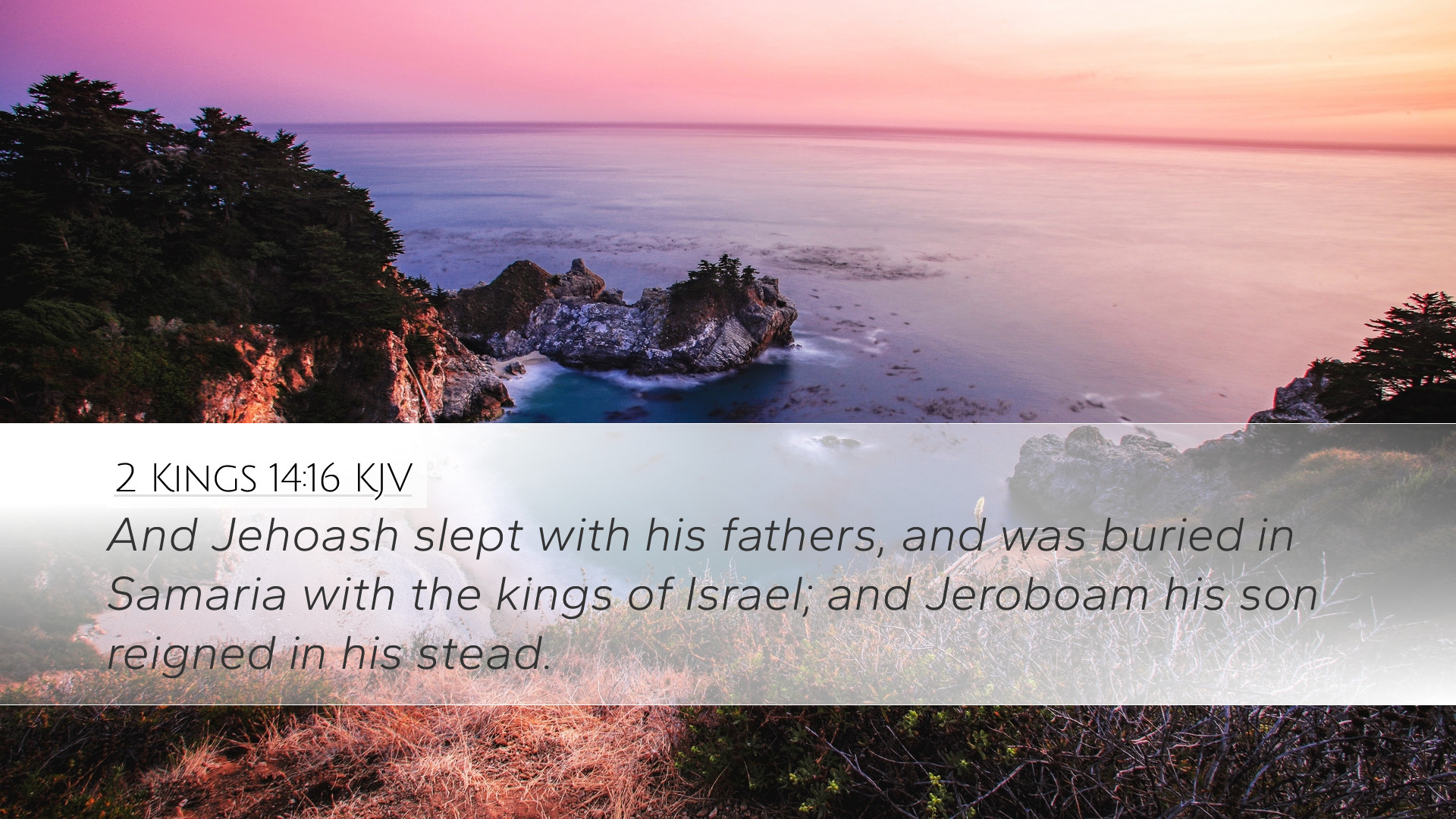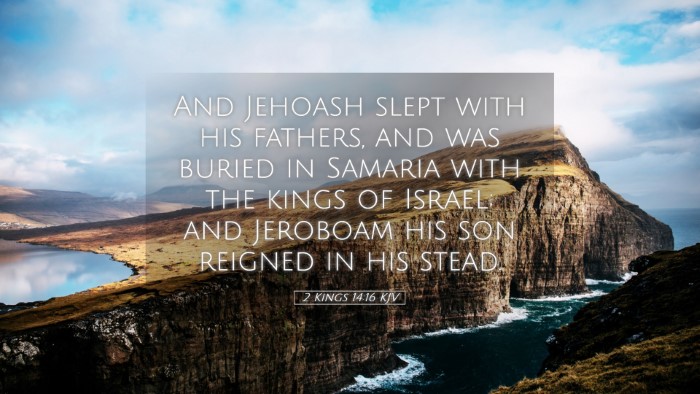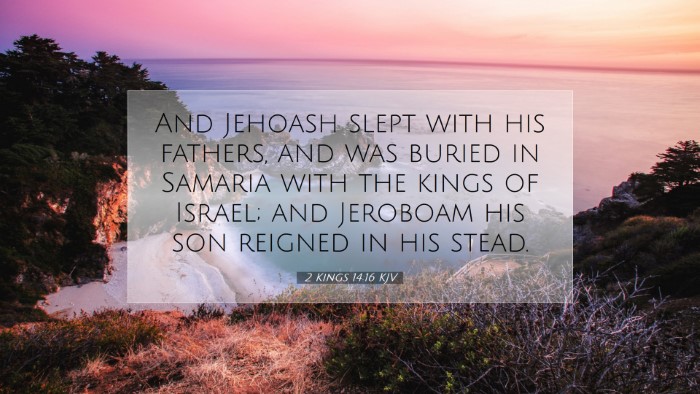Commentary on 2 Kings 14:16
“And Jehoash slept with his fathers, and was buried in Samaria with the kings of Israel; and Jeroboam his son reigned in his stead.”
Contextual Overview
This verse marks the conclusion of the reign of Jehoash (Joash) of Israel. His death symbolizes both the end of his influence and the transition of power to his son Jeroboam II, who is one of the prominent characters in the history of Israel during this era.
In understanding this passage, it is imperative to consider the historical and theological context within which it sits. The books of Kings serve as a narrative of the kings of Israel and Judah, chronicling their lives, deeds, judgments, and their relationship with God.
Insights from Matthew Henry
Matthew Henry emphasizes the inevitability of death and the transient nature of earthly power. Jehoash's burial in Samaria signifies not only a physical end but also the continuity of God's plan through successive generations.
- The Importance of Burial Places: The mention of Samaria signifies the importance of the location as the political capital. Henry notes that being buried with the kings implies a certain recognition of legacy, albeit one that must be scrutinized under God's standards.
- Succession Highlights: Henry points out that Jeroboam's ascension to the throne represents a continuation of the House of Jehu. While each king in Israel had varying degrees of faithfulness to God, their legacies are intertwined in the prophetic mission that God laid out for the nation.
Insights from Albert Barnes
Albert Barnes offers a more detailed approach regarding the historical implications of this verse. He discusses Jehoash’s reign, emphasizing his successes and failures as reflective of the broader theological narrative present in the histories of both Israel and Judah.
- Political Significance: Barnes notes Jehoash's military exploits and successes against Judah, highlighting that such triumphs were significant in the context of Israel's fragmented history. However, he is also aware of the spiritual failures that accompany some political victories.
- Legacy Considerations: He laments that while kings were often judged by their military successes, true legacy is ultimately defined by one's standing before God. Jehoash is depicted as one who, despite accomplishments, failed to guide Israel towards true worship.
- Jeroboam’s Promise: Barnes touches on the implications for Jeroboam II, who is noted for a period of prosperity and restoration, contrasting it with the potential pitfalls he might inherit.
Insights from Adam Clarke
Adam Clarke expands on the character of Jehoash and the significance of his reign and subsequent death. He provides substantial reflection on the thematic elements of divine judgment and mercy.
- Divine Sovereignty: Clarke highlights that God’s providential hand was at work in the rise and fall of each king. Even as Jehoash ruled, the sovereignty of God transcended human actions, leading to eventual consequences that align with Divine justice.
- Evaluation of Leadership: He critiques Jehoash for the ways in which his legacy may have failed to honor the covenant with God. His reliance on military success rather than spiritual fidelity is a crucial lesson for both contemporary and future leaders.
- Call to Students of the Word: Clarke urges theologians and believers to seek God’s favor over any vain pursuit of political power. He emphasizes the lesson that true leadership is measured not by military triumphs but by faithfulness to God’s commands.
Thematic Reflections
This verse invites deep reflection on themes relevant to both ancient Israel and contemporary contexts:
- Legacy and Influence: The succession from Jehoash to Jeroboam reminds us of the ongoing influence of leadership, both good and bad. It invites pastors and students to consider what legacies they are creating in their communities.
- Leadership's Accountability: Jehoash’s reign illustrates the weight of responsibility on leaders. His reign is a call to evaluate what principles guide decisions in leadership roles in the church and society.
- Importance of Divine Alignment: The focus on God’s sovereignty through the ages emphasizes the essential nature of aligning one’s reign or ministry with God’s purposes, rather than merely pursuing success by worldly metrics.
Conclusion
2 Kings 14:16 encapsulates the complex web of political, spiritual, and personal narratives inherent in the biblical text. The contributions from Henry, Barnes, and Clarke provide a rich tapestry of understanding, equipping modern-day readers—pastors, students, and theologians—with profound insights into the nature of leadership, accountability, and divine sovereignty.


